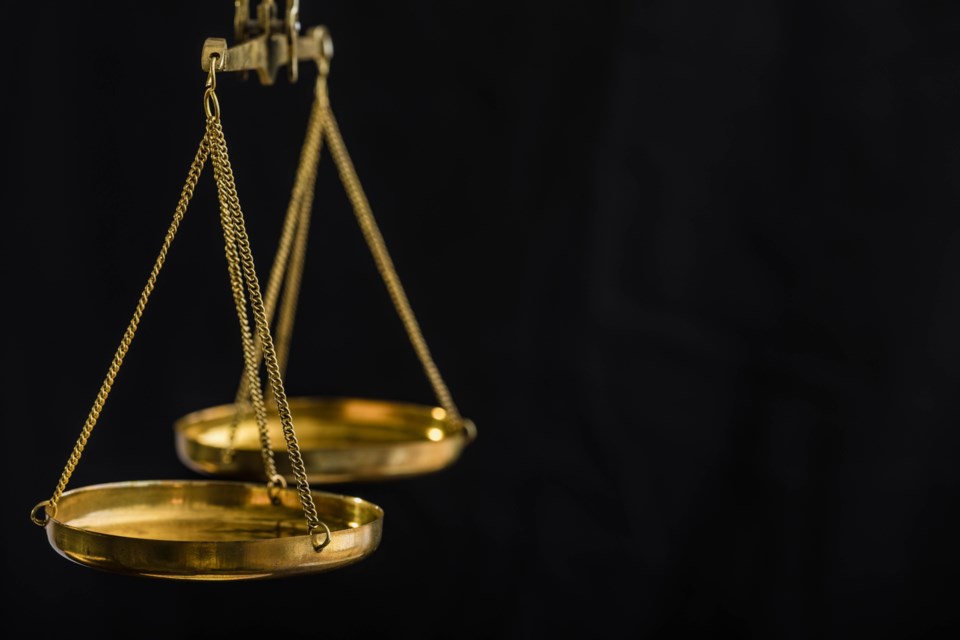A B.C. Supreme Court Justice has found a driver completely at fault for a collision in which a bike rider ran into the side of his van as he was backing the vehicle out of a driveway and into an alley.
Counsel representing the driver, Anthony Gordon Fane, had argued an action brought by the rider, Sean Samuel Rainey, should be dismissed because he was the author of his own misfortune.
At the most, the liability should be split 50-50, Fane's counsel, David Bilkey, contended.
But Justice Dev Dley found otherwise saying Fane backed up into the lane despite being unable to see if there was other traffic in the pathway.
"In essence, he was blindly backing up into a roadway," Dley said in a decision issued March 8.
Recounting testimony heard during a trial spread over six days, Dley said Rainey was riding his mountain bike down the middle of a well-maintained lane with a descending grade and a gradual curve to the right on the morning of Aug. 12, 2006.
Dley said a solid wooden fence ran adjacent to the lane and ended at the corner of Fane's property, blocking the view into his driveway for anyone travelling on the path Rainey was taking. Similarly, Fane's "view of a traveller coming down the lane would also be blocked by the same fence."
Rainey testified the collision happened in "a blink of an eye," with the van suddenly before him. He told the court he struck the back door on the driver's side, smashed through the window and was then flung backwards and ended up against a fence.
While Rainey was generally consistent in his version of events while under cross examination, Dley said there were two "glaring contradictions" between the testimony he gave at trial and during an examination for discovery.
The day before the collision, Rainey had been travelling back to Prince George from Saskatchewan. At trial he denied smoking marijuana because the driver's child was with them, but at discovery Rainey said he had "smoked it all the way from Saskatchewan."
And at trial, Rainey said his hands were on the handle bars as he coasted down the lane but during discovery, he said his hands were on top of the bike's bull horns - extensions off the ends of the handle bars.
Dley accepted Rainey's evidence from discovery - that he had been smoking and his hands were on the bull horns - over that given at trial, noting discovery took place in 2009 and so, his memory of the event would have been better at that time.
More important, Dley found the contradictions did not cause him to doubt Rainey's reliability.
"Not every contradiction or difference in evidence from a discovery to trial necessarily results in the rejection of a witnesses' testimony," Dley wrote in his decision. "It is the significance of the contradictions within the context of the entire body of evidence that leads to the rejection, in whole or in part, of a witnesses' testimony."
Fane also testified and while there were gaps in his memory and moments of uncertainty, Dley found his evidence did not differ much from Rainey's. He also found that while Rainey's hands were on the bull horns, the brakes were within finger length, thet he was coasting and attentive to his surroundings and noted he could not see ladder on top of the van because of the height of the fence.
Fane breached his relevant statutory duties in part by reversing the van "when the movement could not be made in safety."
According to an ambulance crew report, Rainey had been riding at a high rate of speed, catapulted through the window upon hitting the van and then climbed out and made his way across the alley and collapsed in the tall grass.
Had Dley agreed, Rainey's version could have been tainted but the judge found there was no evidence from witnesses who were there before the ambulance arrived to support that version
Rainey represented himself at trial. He had a lawyer when the action began in 2008 but they parted ways over differences. The same happened when Rainey took on a second lawyer and proceeded on his own behalf after that.
The trial began in February 2017 but was put on hold to give Rainey another chance to get counsel. When that failed, the trial was resumed in February 2019.
While the injuries Rainey suffered appear to have been significant and permanent, Dley wants updated evidence before assessing damages.



